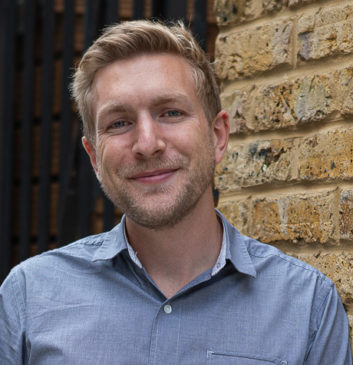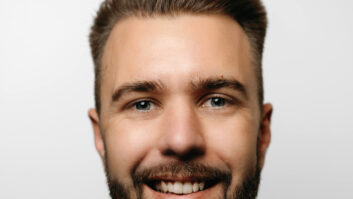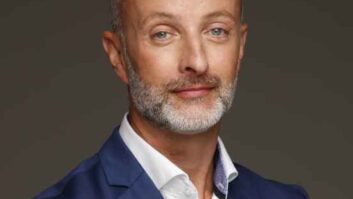 Tell us about Autograph Sound
Tell us about Autograph Sound
Although Autograph Sound has been synonymous with theatre since the early ‘70s, in recent years we have been progressively expanding our portfolio such that we are now a full-service provider in many areas of professional audio. Those services include sound design, equipment rental and sales, special events, technical support, consultancy, infrastructure design and installation, training, product development, advanced digital networking, data management and visual media. Our new structure was launched at PLASA London 2021.
What about your own background in AV?
My own background is as a PSE (production sound engineer) and since 2017 I have led a team who have delivered a wide variety of events to the same exacting standards for which Autograph is known. Society weddings and parties, brand activations, product launches and corporate AV are all part of
our work, for clients such as Jaguar Land Rover, Bvlgari, Aston Martin, Moët & Chandon, Ford and Rolls-Royce.
As head of special events, how do you approach your job?
Obviously how we approach our special events business is heavily influenced by our work in theatre sound and, increasingly, helping to deliver experiences that have the impact of top-level theatre is at the core of what we do for our clients. Autograph have led the way in immersive theatre sound for decades and we’re adapting those techniques for use in special events. In practical terms this means designing, implementing and operating portable (and often very discreet) multi-media systems that deliver a similarly impactful experience.
How do you work with your clients?
Very often our clients will give us an idea only of the type of experience they want to deliver – how they want their guests to be affected by it, how they want them to feel, the emotional response they’re trying to generate – without any clear idea of how the audio side of the project can achieve that. They will tell us what they want it to look like, even what they want it to smell like, but rarely how it should sound. We’re often given a bit of playback they’d like to use and we’ll then massage it into something much more creative and atmospheric to help create and tell the story. The higher-profile brands in particular are asking for fun, depth and atmosphere, for events that people can walk into and enjoy because they’re different, memorable and maybe even unique.
How has the decline of Covid affected things?
There’s a perceptible move away from virtual events to ‘real’ things, actual physical happenings involving real people and tactile objects. VR and AR technology definitely has its place but increasingly we’re seeing a preference for creating a sense of immediacy, bringing together audible and visible media with products or occasions to create a sensory, live performance-style experience.
And what about client expectations?
It is noticeable that client’s expectations are definitely higher than previously and I think a lot of that comes from modern theatre and perhaps cinema too. The awareness of how well good audio can help them tell their story is definitely growing and that understanding is greater with our repeat clients because, obviously, they’ve had the chance to go through the same events as their guests. They then realise how our experience in creating theatrical magic helps to make an atmosphere that’s appropriate to their product or brand – some dark and moody, some dazzling and energised.
Tell us about sound design
I have the luxury of being able to access not only Autograph’s equipment inventory but also their design services – although the company works with independent sound designers every day, sound design has always been a big part of Autograph’s work and being able to draw on that knowledge really is invaluable for me. I’ll often map out a draft design for a project and then work with one of the team to create a kit list and finished system. We also use a number of products and technologies that feature elsewhere in the business, for example QLab (the industry standard audio, video and lighting control software) and several of the proprietary immersive mixing platforms from various manufacturers.
And the future of immersive sound?
Although it’s now reasonably well-developed in theatre, achieving that same sensory impact from immersive sound at special events is new and so far we’re only scratching the surface of what’s possible. The growing realisation of what is technically feasible is creating new opportunities for brand’s creative teams to deliver their backstory, to create an atmosphere, to forge a special experience that’s unique to that moment – just like theatre really!







